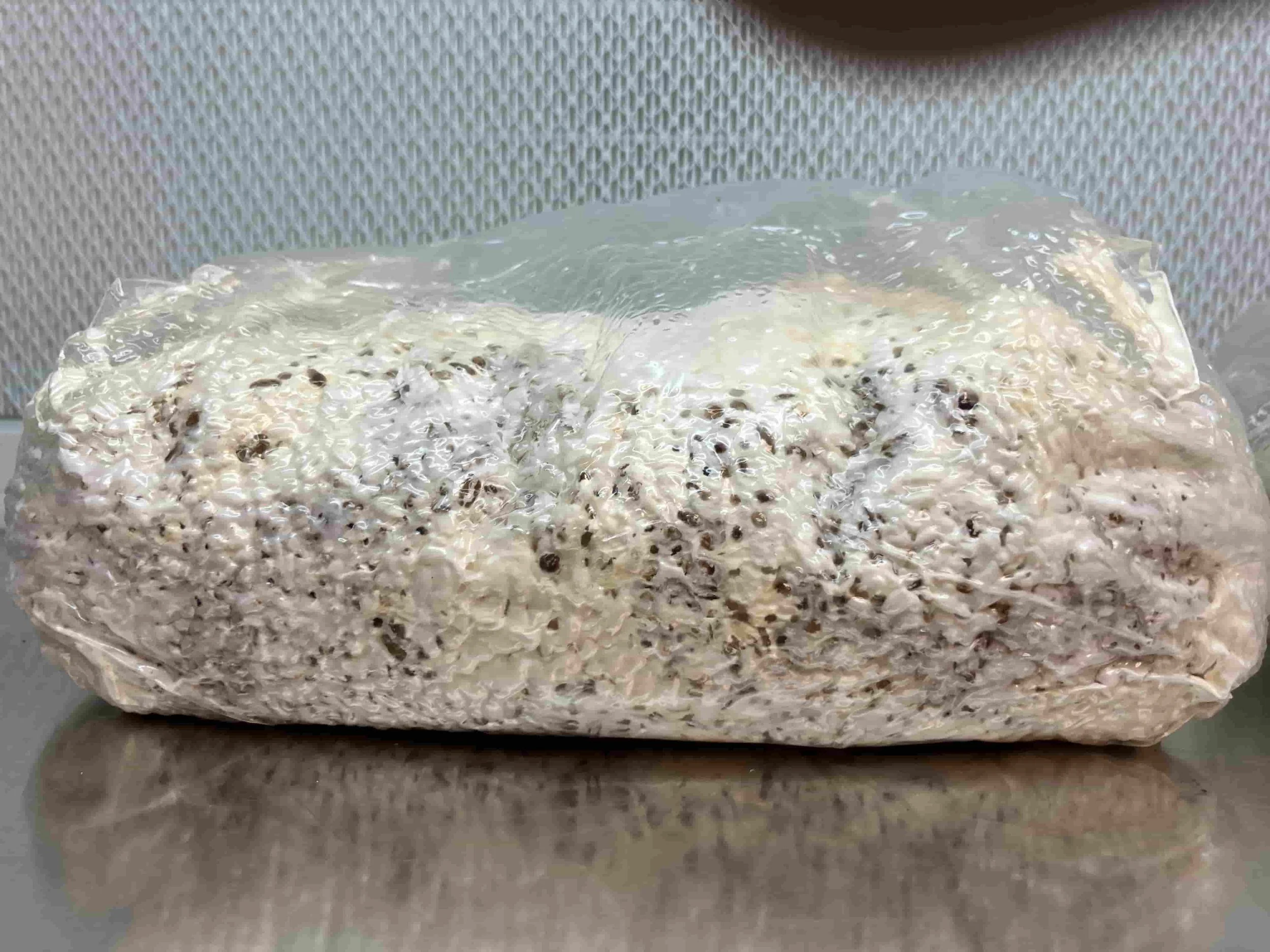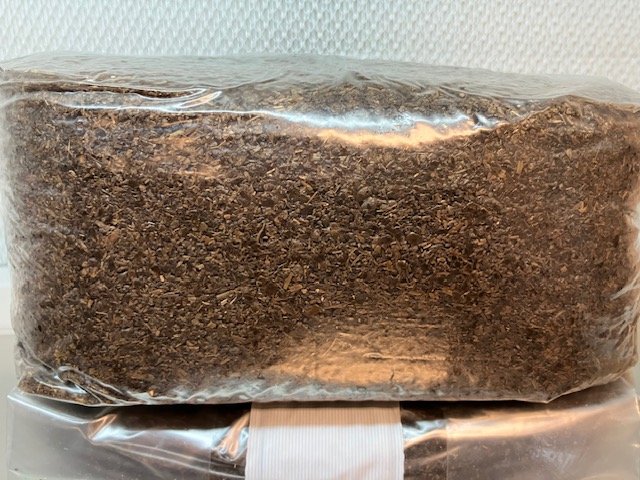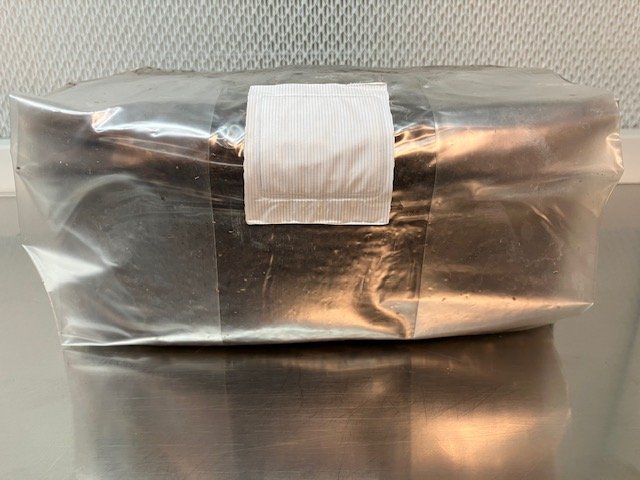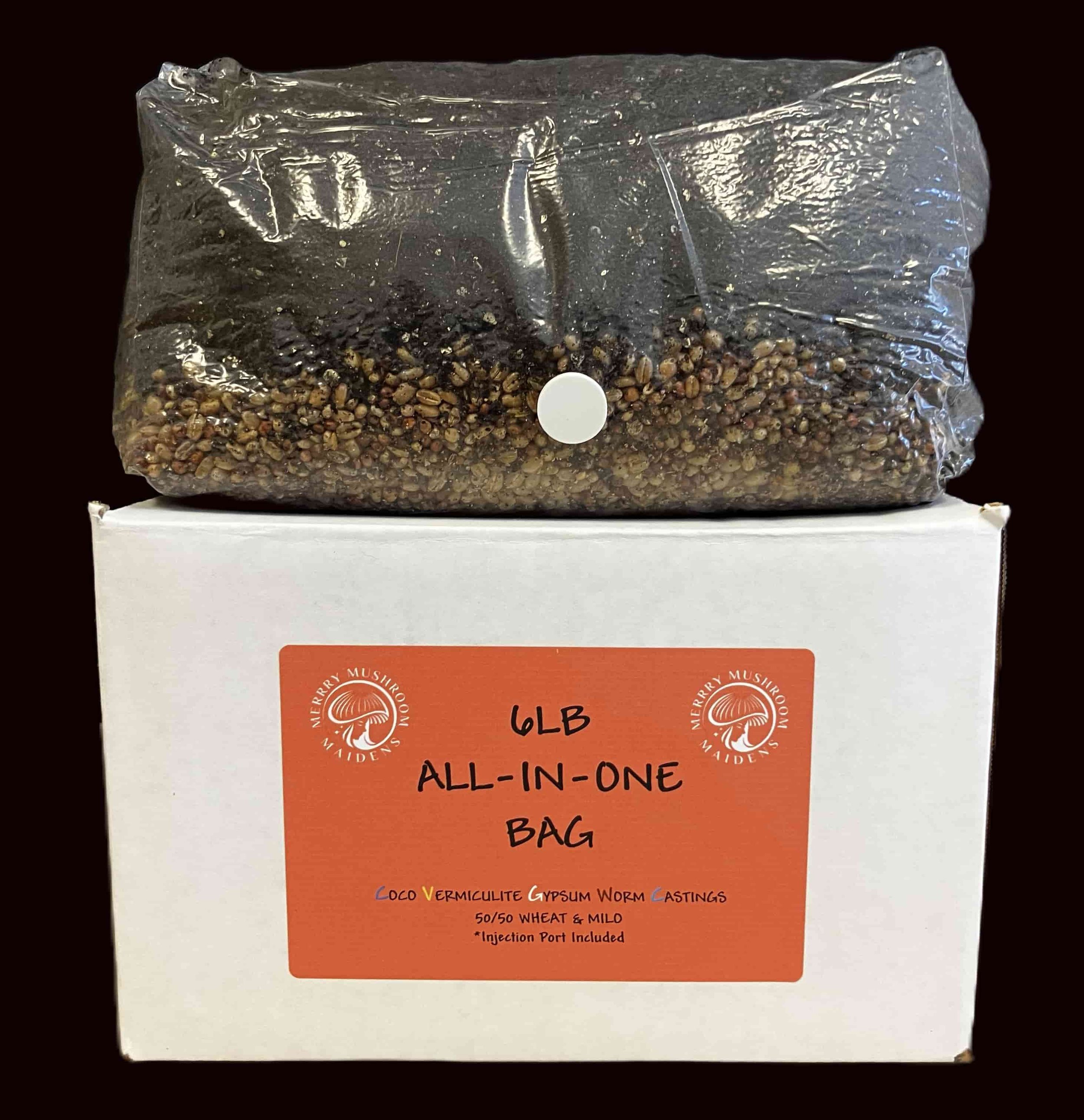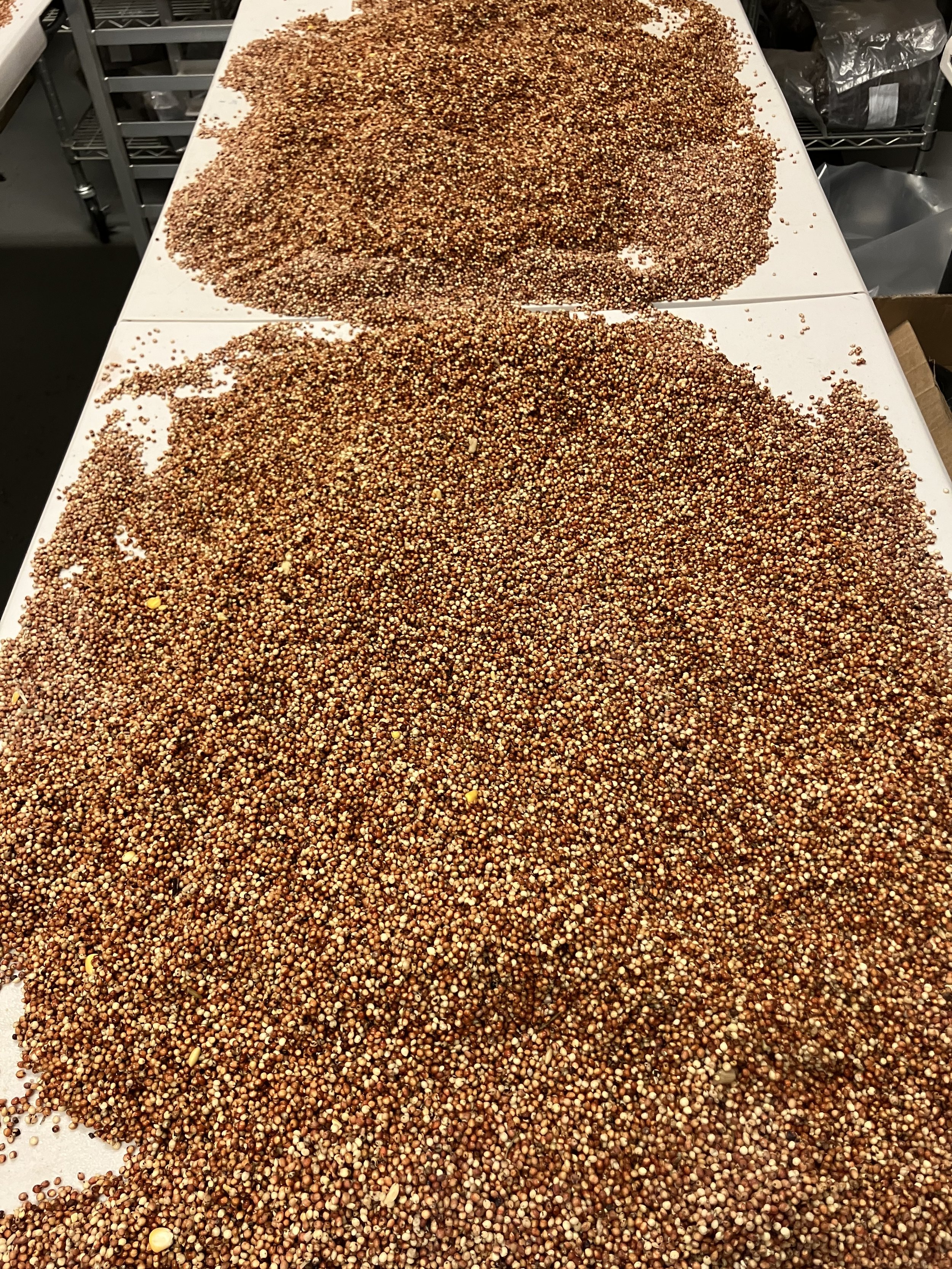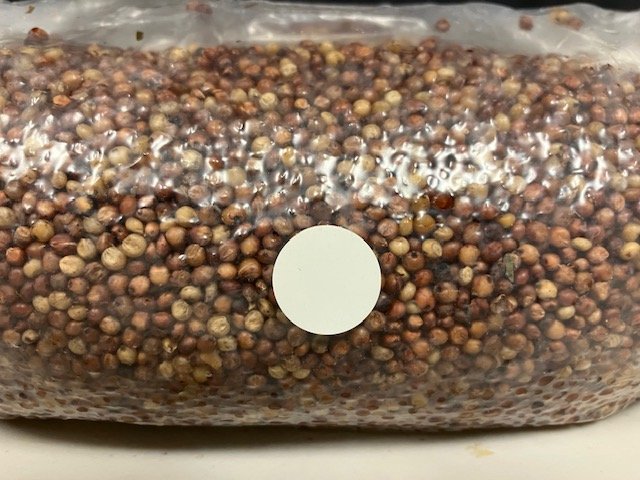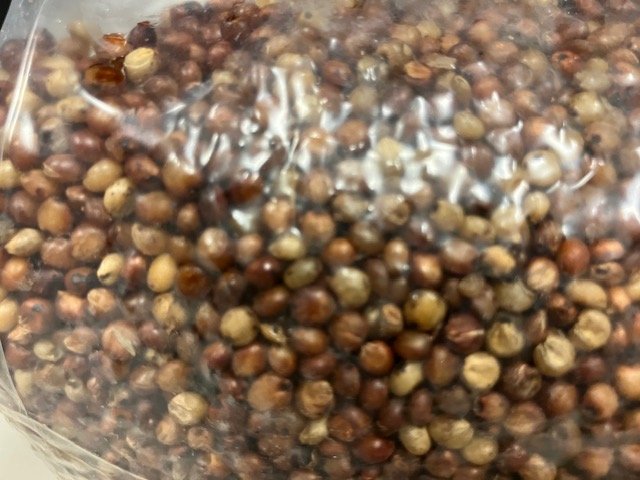Pre Colonized Grain Spawn for Culinary Mushrooms
Step up your growing game with pre colonized grain spawn
Colonized grain spawn is a crucial component for mushroom cultivation, serving as the foundation for successful mycelium growth. This product consists of sterilized grains—commonly rye, wheat, or millet—that have been inoculated with a specific strain of mycelium. The inoculation process allows the mycelium to colonize the grains, leading to a robust network of mycelial growth of fully colonized grain bag.
Once the grains are fully colonized spawn bag, they exhibit a white healthy active mycelium. This stage is essential because the mycelium acts as a living culture, providing the necessary grains to introduce to your mushroom substrate. The fully colonized grain spawn bag can be mixed with various substrate materials, such as sawdust, straw, or compost, facilitating the subsequent growth of mushrooms.
The advantages of using colonized grain spawn include its efficiency and reliability. It accelerates the cultivation process, allowing mushroom growers to achieve a higher yield in a shorter time frame. Additionally, using a quality grain spawn minimizes the risk of contamination, as the colonized grains typically outcompete unwanted microorganisms for resources.
Growers can prepare their environments with appropriate humidity and temperature controls to optimize the growth of mushrooms. By mixing fully colonized grain spawn bag with a suitable substrate, the mycelium will swiftly penetrate the inoculated material, for promoting future fruiting of mushrooms.
In summary, colonized grain spawn plays a pivotal role in mushroom farming. It serves not only as an inoculant but also as a means to maintain the health and vigor of various mushroom species. Whether you're a seasoned cultivator or a novice enthusiast, understanding and utilizing colonized grain spawn is essential for successful mushroom production.
Step up your growing game with pre colonized grain spawn
Colonized grain spawn is a crucial component for mushroom cultivation, serving as the foundation for successful mycelium growth. This product consists of sterilized grains—commonly rye, wheat, or millet—that have been inoculated with a specific strain of mycelium. The inoculation process allows the mycelium to colonize the grains, leading to a robust network of mycelial growth of fully colonized grain bag.
Once the grains are fully colonized spawn bag, they exhibit a white healthy active mycelium. This stage is essential because the mycelium acts as a living culture, providing the necessary grains to introduce to your mushroom substrate. The fully colonized grain spawn bag can be mixed with various substrate materials, such as sawdust, straw, or compost, facilitating the subsequent growth of mushrooms.
The advantages of using colonized grain spawn include its efficiency and reliability. It accelerates the cultivation process, allowing mushroom growers to achieve a higher yield in a shorter time frame. Additionally, using a quality grain spawn minimizes the risk of contamination, as the colonized grains typically outcompete unwanted microorganisms for resources.
Growers can prepare their environments with appropriate humidity and temperature controls to optimize the growth of mushrooms. By mixing fully colonized grain spawn bag with a suitable substrate, the mycelium will swiftly penetrate the inoculated material, for promoting future fruiting of mushrooms.
In summary, colonized grain spawn plays a pivotal role in mushroom farming. It serves not only as an inoculant but also as a means to maintain the health and vigor of various mushroom species. Whether you're a seasoned cultivator or a novice enthusiast, understanding and utilizing colonized grain spawn is essential for successful mushroom production.
Step up your growing game with pre colonized grain spawn
Colonized grain spawn is a crucial component for mushroom cultivation, serving as the foundation for successful mycelium growth. This product consists of sterilized grains—commonly rye, wheat, or millet—that have been inoculated with a specific strain of mycelium. The inoculation process allows the mycelium to colonize the grains, leading to a robust network of mycelial growth of fully colonized grain bag.
Once the grains are fully colonized spawn bag, they exhibit a white healthy active mycelium. This stage is essential because the mycelium acts as a living culture, providing the necessary grains to introduce to your mushroom substrate. The fully colonized grain spawn bag can be mixed with various substrate materials, such as sawdust, straw, or compost, facilitating the subsequent growth of mushrooms.
The advantages of using colonized grain spawn include its efficiency and reliability. It accelerates the cultivation process, allowing mushroom growers to achieve a higher yield in a shorter time frame. Additionally, using a quality grain spawn minimizes the risk of contamination, as the colonized grains typically outcompete unwanted microorganisms for resources.
Growers can prepare their environments with appropriate humidity and temperature controls to optimize the growth of mushrooms. By mixing fully colonized grain spawn bag with a suitable substrate, the mycelium will swiftly penetrate the inoculated material, for promoting future fruiting of mushrooms.
In summary, colonized grain spawn plays a pivotal role in mushroom farming. It serves not only as an inoculant but also as a means to maintain the health and vigor of various mushroom species. Whether you're a seasoned cultivator or a novice enthusiast, understanding and utilizing colonized grain spawn is essential for successful mushroom production.

